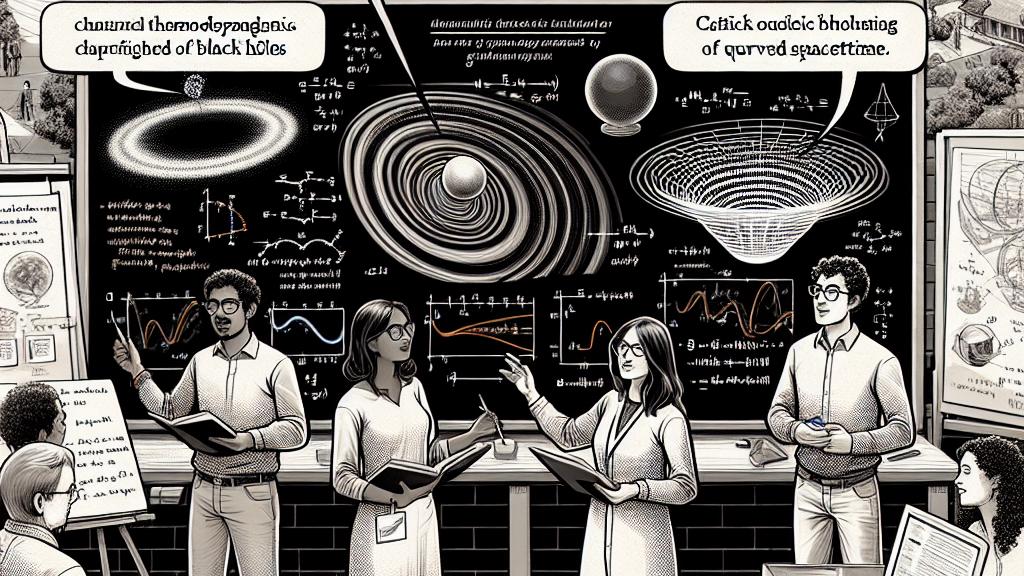Exploring Quantum Effects on Black Hole Dynamics
Overview
- Recent studies dive deep into the fascinating relationship between quantum phenomena and black hole dynamics, unveiling cosmic secrets.
- Researchers aim to extend classical black hole inequalities, shedding light on various behaviors exhibited in the mysterious quantum realm.
- Insights into Hawking radiation and the elusive nature of singularities illuminate fundamental questions about the laws of physics.

The Italian Roots of Quantum Black Hole Research
Imagine a group of passionate scientists from Italy, the UK, and Spain united by a single goal: to unlock the secrets of black holes! This diverse collaboration features brilliant minds like Dr. Antonia M. Frassino from SISSA in Italy, who has been captivated by black hole thermodynamics throughout her academic journey. In one enlightening statement, she expressed, 'This project helped us establish universal bounds to guide studies of quantum effects in curved spacetime.' With every discovery, these researchers are reshaping our understanding of black hole behaviors under the influence of quantum mechanics, challenging established viewpoints, and forging new paths in the field of astrophysics. It's an exciting time, as they tread where few have gone before!
The Cosmic Censorship Conjecture and Its Implications
At the heart of this cosmic puzzle lies the cosmic censorship conjecture, a captivating idea that suggests singularities—the baffling points of infinite density—must remain shrouded behind event horizons. This is crucial because it preserves the predictability of the cosmos. But here's where it gets intriguing: as researchers strive to expand classical inequalities like the Penrose inequality into the quantum domain, they are confronted with profound questions. Could quantum mechanics reveal hidden aspects of these singularities? Dr. Robie Hennigar from Durham University articulates the thought-provoking nature of this quest as he investigates gravitational singularities, emphasizing the potential paradigm shift that could redefine how we perceive space and time. The journey is not just academic; it is an exploration of fundamental truths!
Hawking Radiation: A Window into Quantum Black Holes
Ah, Hawking radiation! This phenomena captures the imagination of many and represents a remarkable breakthrough in our understanding of black holes. Stephen Hawking revealed that black holes could emit energy, thanks to quantum fluctuations occurring at their event horizons. Picture a black hole, resembling a candle burning down, continuously consuming everything in its vicinity while gradually loosening its grip on energy. This captivating idea raises profound questions: Is information about what falls into a black hole preserved within the emitted Hawking radiation? Drawing parallels to a book undergoing combustion, we can think of how information could linger in the smoke and ash, despite the physical pages disappearing. Dr. Andrew Svesko points out the significance of this interplay between quantum effects and black holes, highlighting how it may offer crucial insights into the very nature of reality itself. By delving into these mysteries, scientists are not merely passive observers—they are active participants in unraveling the universe's most profound enigmas!

Loading...